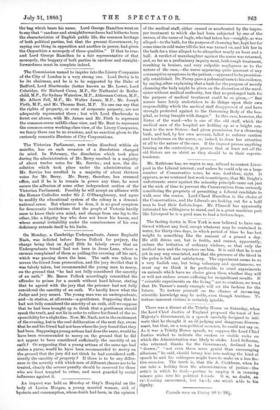On Monday, a Cambridge Undergraduate, James Reginald Nash, was indicted
before Baron Pollock for perjury, the charge being that on April 29th he falsely swore that an Undergraduate friend Shad not been in Jesus Lane, where a carman complained of them as pulling the covering off his cart, which was passing down the lane. The oath was taken to screen the friend from prosecution, and the jury decided that it -was falsely taken, but recommended the young man to mercy, on the ground that "he had not fully considered the sanctity of an oath." Mr. Baron Pollock accordingly committed the offender to prison for a month without hard labour, stating that he agreed with the jury that the prisoner bad not fully considered the sanctity of an oath. We hardly know what the Judge and jury meant. The young man was an undergraduate, and—in station, at all events—a gentleman. Supposing that he had not fully considered the sanctity of an oath, still we suppose that he bad been brought up to think that a gentleman should speak the truth, and not lie in order to relieve his friend of the re- sponsibility for a slightfine. Now, Mr. Nash, not in the excitement of the evening, but in the cool deliberation of the next day, swore that he and his friend had not been wherethe jury found that they lad been. Supposing ayonng artisan had done the same, would he have been recommended to mercy on the ground that he did not appear to have considered sufficiently the sanctity of an oath P Or supposing that a young artisan of the same age had stolen a purse, would he have been recommended to mercy on the ground that the jury did not think he had considered suffi- ciently the sanctity of property P If there is to be any differ- ence in the severity with which men of different classes are to be treated, clearly the severer penalty should be reserved for those who are least tempted to crime, and most guarded by social influences against it.


































 Previous page
Previous page